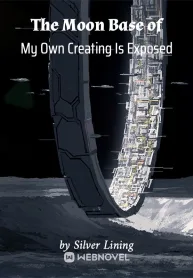Chapter 2717: 【2717】According to
Chapter 2717 [2717] Well-founded
How to identify which category of ventricular tachycardia?
At this stage, the patient cannot be moved for other examinations during the rescue process.
can rely on electrocardiogram.
For example, if you look at lead V1, if the R wave is predominant, the origin of the ventricular tachycardia may be the left ventricle Q wave predominant may be the right ventricle. The main waves of II, III, and aVR may be abnormal in the upper outflow tract upward, and the main waves of II, III, and aVR may be abnormal in the apex. These quick judgments cannot be said to be 100% accurate, but they may give doctors a general direction of suspicion.
Damn it, the current situation is too urgent to abort cardiac compressions, and trying to do twelve leads on a patient becomes a fantasy.
The last way, as Xie thought, was based on clinical experience and intuition.
The eyes of a large number of people came to her again: first aid can best reflect the ceiling of a doctor's talent. No matter how good the routine treatment is in the ward and operating room, it belongs to the top students who review their homework and take the exam. Only the first aid scenario is a surprise test.
Xie was tested faster than the boss.
Electrocardiogram cannot be done. Judging purely from clinical experience, it is very rare that the electrical defibrillation fails to exclude the problem of the machine itself and the operation is not standardized. Clinically, some cases are bidirectional ventricular tachycardia.
Xie’s words are well-founded.
Mu Yongxian put down the electrode plate decisively.
The difficulty comes again, what to do with bidirectional ventricular tachycardia?
"I'm worried that he has polymorphic ventricular tachycardia." Mu Yongxian further said, "He is young."
As if the inspiration of Mr. Mu was detonated by the words of Xie classmate.
Polymorphic VT is also rare and happens to be more common in young adults. Most of these patients have no symptoms before the onset, and some patients even take medication without any effect. At the time of the attack, the state was exactly the same as that of classmate Wei, with syncope and sudden death. The etiology of this disorder is commonly seen in the genetic electrocardiographic disorder Bmgada syndrome, a genetic disorder in which the electrical activity of the heart muscle is abnormal. Ordinary bidirectional ventricular tachycardia is relatively stable in hemodynamics, unlike current patients in shock.
"He doesn't have this genetic disease."
All the bigwigs hurry up and participate in the rescue discussion every second, but Cao Zhao denied it.
"Do you know what happened to him before?" Mu Yong asked first, his tone revealing that he had already noticed this.
Your opponent knows your opponent best. The opponent he observed, Cao Zhao, was immortal, and the students all kicked to the subordinates below.
Cao Zhao personally takes students unless they are good enough or have special circumstances. Wei's talent is average, what do you think could be the case?
At this point, Cao Zhao admits: "He had surgery for congenital heart disease before."
The answer is revealed.
Mu Yong first said: "Have you been cured?"
"What do you say?"
Both are pediatric surgeons, so you don’t need to ask.
Congenital heart disease, as long as it can be cured, it can basically be cured. If he couldn't be cured completely, how could Wei Wei be able to study medicine at university.
The accident happened after 20 years of treatment. It is too hard to say whether it is related to the previous congenital heart disease.
It can only be said that heart disease patients are fine, and it is too difficult to say what the situation after surgery is specific to individual cases. For patients who have suffered from congenital heart disease, as a pediatric cardiac surgeon, the immortal brother will sympathize with a heart that has been repaired for congenital defects, and will always be weak.
Discovering that Wei may have a cold, he informed his old father, thinking of convincing the patient's family to let Wei know his medical history. The surgical work that Wei is going to engage in is particularly demanding on personal strength and spirit, and needs to be fully prepared.
(end of this chapter)
How to identify which category of ventricular tachycardia?
At this stage, the patient cannot be moved for other examinations during the rescue process.
can rely on electrocardiogram.
For example, if you look at lead V1, if the R wave is predominant, the origin of the ventricular tachycardia may be the left ventricle Q wave predominant may be the right ventricle. The main waves of II, III, and aVR may be abnormal in the upper outflow tract upward, and the main waves of II, III, and aVR may be abnormal in the apex. These quick judgments cannot be said to be 100% accurate, but they may give doctors a general direction of suspicion.
Damn it, the current situation is too urgent to abort cardiac compressions, and trying to do twelve leads on a patient becomes a fantasy.
The last way, as Xie thought, was based on clinical experience and intuition.
The eyes of a large number of people came to her again: first aid can best reflect the ceiling of a doctor's talent. No matter how good the routine treatment is in the ward and operating room, it belongs to the top students who review their homework and take the exam. Only the first aid scenario is a surprise test.
Xie was tested faster than the boss.
Electrocardiogram cannot be done. Judging purely from clinical experience, it is very rare that the electrical defibrillation fails to exclude the problem of the machine itself and the operation is not standardized. Clinically, some cases are bidirectional ventricular tachycardia.
Xie’s words are well-founded.
Mu Yongxian put down the electrode plate decisively.
The difficulty comes again, what to do with bidirectional ventricular tachycardia?
"I'm worried that he has polymorphic ventricular tachycardia." Mu Yongxian further said, "He is young."
As if the inspiration of Mr. Mu was detonated by the words of Xie classmate.
Polymorphic VT is also rare and happens to be more common in young adults. Most of these patients have no symptoms before the onset, and some patients even take medication without any effect. At the time of the attack, the state was exactly the same as that of classmate Wei, with syncope and sudden death. The etiology of this disorder is commonly seen in the genetic electrocardiographic disorder Bmgada syndrome, a genetic disorder in which the electrical activity of the heart muscle is abnormal. Ordinary bidirectional ventricular tachycardia is relatively stable in hemodynamics, unlike current patients in shock.
"He doesn't have this genetic disease."
All the bigwigs hurry up and participate in the rescue discussion every second, but Cao Zhao denied it.
"Do you know what happened to him before?" Mu Yong asked first, his tone revealing that he had already noticed this.
Your opponent knows your opponent best. The opponent he observed, Cao Zhao, was immortal, and the students all kicked to the subordinates below.
Cao Zhao personally takes students unless they are good enough or have special circumstances. Wei's talent is average, what do you think could be the case?
At this point, Cao Zhao admits: "He had surgery for congenital heart disease before."
The answer is revealed.
Mu Yong first said: "Have you been cured?"
"What do you say?"
Both are pediatric surgeons, so you don’t need to ask.
Congenital heart disease, as long as it can be cured, it can basically be cured. If he couldn't be cured completely, how could Wei Wei be able to study medicine at university.
The accident happened after 20 years of treatment. It is too hard to say whether it is related to the previous congenital heart disease.
It can only be said that heart disease patients are fine, and it is too difficult to say what the situation after surgery is specific to individual cases. For patients who have suffered from congenital heart disease, as a pediatric cardiac surgeon, the immortal brother will sympathize with a heart that has been repaired for congenital defects, and will always be weak.
Discovering that Wei may have a cold, he informed his old father, thinking of convincing the patient's family to let Wei know his medical history. The surgical work that Wei is going to engage in is particularly demanding on personal strength and spirit, and needs to be fully prepared.
(end of this chapter)






